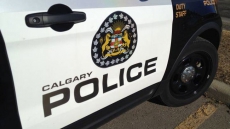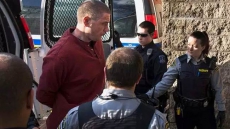MONTREAL — A disgruntled B.C. bride has filed a national class-action lawsuit against Air Transat for ruining her wedding by allegedly misrepresenting flights as non-stop.
Vancouver law firm Rosenberg Kosakoski LLP said Wednesday it has launched the claim against the airline operated by Montreal-based tour company Transat A.T. (TSX:TRZ).
The claim alleges the airline fraudulently misrepresented its efforts that were designed to increase ticket prices and reduce costs by using "sub-standard aircraft."
The law firm says Air Transat advertised direct flights that typically garner higher prices. However, the aircraft ultimately made stops that were not disclosed to passengers until the plane was airborne.
The class action was filed in the British Columbia Supreme Court by Jessica Spencer, a 33-year-old accountant from Victoria, on behalf of herself and other passengers who were misled.
Spencer claims Air Transat's actions ruined her dream destination wedding.
The lawsuit hasn't been tested in court.
Transat couldn't be immediately reached for comment.
The class-action suit comes as the Canadian Transportation Agency held a hearing Wednesday about passengers being trapped for hours aboard two Air Transat jets earlier this summer in sweltering heat with a lack of water and facing the stench of vomit in the cabin.

Christophe Hennebelle, the airline's vice-president of corporate affairs, offered an apology to passengers, saying the hearings showed the complexity of the situation on July 31.
Both planes were originally bound for Montreal — one from Brussels, the other from Rome — but were forced to divert to Ottawa due to weather conditions. They were among about 20 other planes that couldn't land in Montreal or Toronto during a two-hour window.
GROUND CREWS DETAIL LACK OF COMMUNICATION, 'DEBACLE,' OF AIR TRANSAT DELAYS
OTTAWA — Ground crews working two Air Transat flights that faced high-profile tarmac delays this summer say the pilots didn't tell them, nor were they aware, of imminent fuel needs aboard one of the aircraft, nor were they asked for water for the passengers.
One of the two international flights ran out of fuel during the hours-long delay, causing a shutdown of the air conditioning system, leading to rising cabin temperatures, a child vomiting before making it to the aircraft bathrooms, tensions over lack of water and, ultimately, a 911 call from one of the passengers.
Representatives from First Air, the ground handlers for Air Transat at the Ottawa airport, say they did order fuel, but it wasn't possible to get it to the aircraft because they were parked on the taxiway at the far end of the airport.
Owen Prosser, a First Air ramp co-ordinator who worked the Air Transat flights, says the pilot of the plane that ran out of fuel never told him how desperate the situation was.

"I never received any phone calls from the captains," Prosser said.
"He never told me he needed fuel. He did tell me there was a dog in the (cargo) pit that needed water."
Customs agents opened the cargo hold and gave the dog water during the delay.
The testimony came at the start of the second day of hearings into the delays, in which two Air Transat flights sat on the tarmac for almost five and six hours, respectively, with passengers not allowed to disembark.
The ensuing weeks have seen finger-pointing between the airline and airport officials over the incident, which is now subject of a class-action lawsuit. The Canadian Transportation Agency is holding hearings to determine whether Air Transat broke its tariff agreement with customers aboard the flight.
Air Transat officials are scheduled to testify for the remainder of the day.
The two Montreal-bound flights were diverted to Ottawa due to weather on July 31, along with about 20 other planes in an incident that appears to have taxed airport resources.
Prosser says he has never experienced such a mass diversion of planes, calling it a "debacle." Fuelling teams ran out of fuel on several occasions.
Among the planes was an Airbus 380, the largest plane to land that day.
The need to park the Air Emirates' Airbus forced the two Air Transat planes — one from Brussels, the other from Rome — to be moved to the airport taxiway where it wasn't possible to fuel or service them.
Yesterday, passengers told members of the Canadian Transportation Agency, which is investigating the incidents, that they would have given anything to be allowed off the planes, even if only to face further delays or long drives home.
Carol Clark, director of commercial operations for First Air, told the hearing today that the flights would have been "terminated" had the pilots decided to let the passengers disembark, forcing them to stay overnight in a hotel or travel to Montreal by bus.






